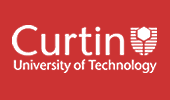| Area: |
School of Biomedical Sciences |
| Credits: |
50.0 |
| Contact Hours: |
5.0 |
| |
| ** The tuition pattern below provides details of the types of classes and their duration. This is to be used as a guide only. For more precise information please check your unit outline. ** |
| |
| Lecture: |
1 x 2 Hours Weekly |
| Practical: |
1 x 3 Hours Weekly |
| Prerequisite(s): |
11600 (v.4) Microbiology 232 or any previous version
|
| |
| Syllabus: |
The molecular biology and pathogenesis of infectious diseases is one of the most rapidly expanding areas of knowledge. This unit examines viral, bacterial and protozoan pathogenesis at the molecular level and applications that improve diagnosis, treatment, epidemiological analysis, control and prevention of infectious diseases. A brief introduction to the molecular biology and biotechnology of prions, viroids, fungi, algae and protozoa. Some of the commercial applications arising from this knowledge include strategies for the development of antimicrobial agents and vaccines, cloning and expression vectors, biological control of insects and pests, strategies for studying oncogenesis and cell apoptosis and tools for diagnosing infectious agents and analysing the epidemiology of infectious diseases. Antimicrobial agents have become one our most important defences against microbial pathogens. Examination of the action and range of antimicrobial agents, the mechanisms of resistance, spread and epidemiology ofantimicrobial resistance genes and the urgency and approaches for finding antimicrobial agents. Many cutting edge techniques have been developed to study the molecular biology of microorganisms. |
| |
| ** To ensure that the most up-to-date information about unit references, texts and outcomes appears, they will be provided in your unit outline prior to commencement. ** |
| |
| Field of Education: | 60100 Medical Studies (Narrow Grouping) |
| Funding Cluster: | 09 - Dentistry, Medicine, Veterinary Science |
| SOLT (Online) Definitions*: | Supplemental
*Extent to which this unit or thesis utilises online information |
| Result Type: | Grade/Mark |
Availability |
| Availability Information has not been provided by the respective School or Area. Prospective students should contact the School or Area listed above for further information. |


